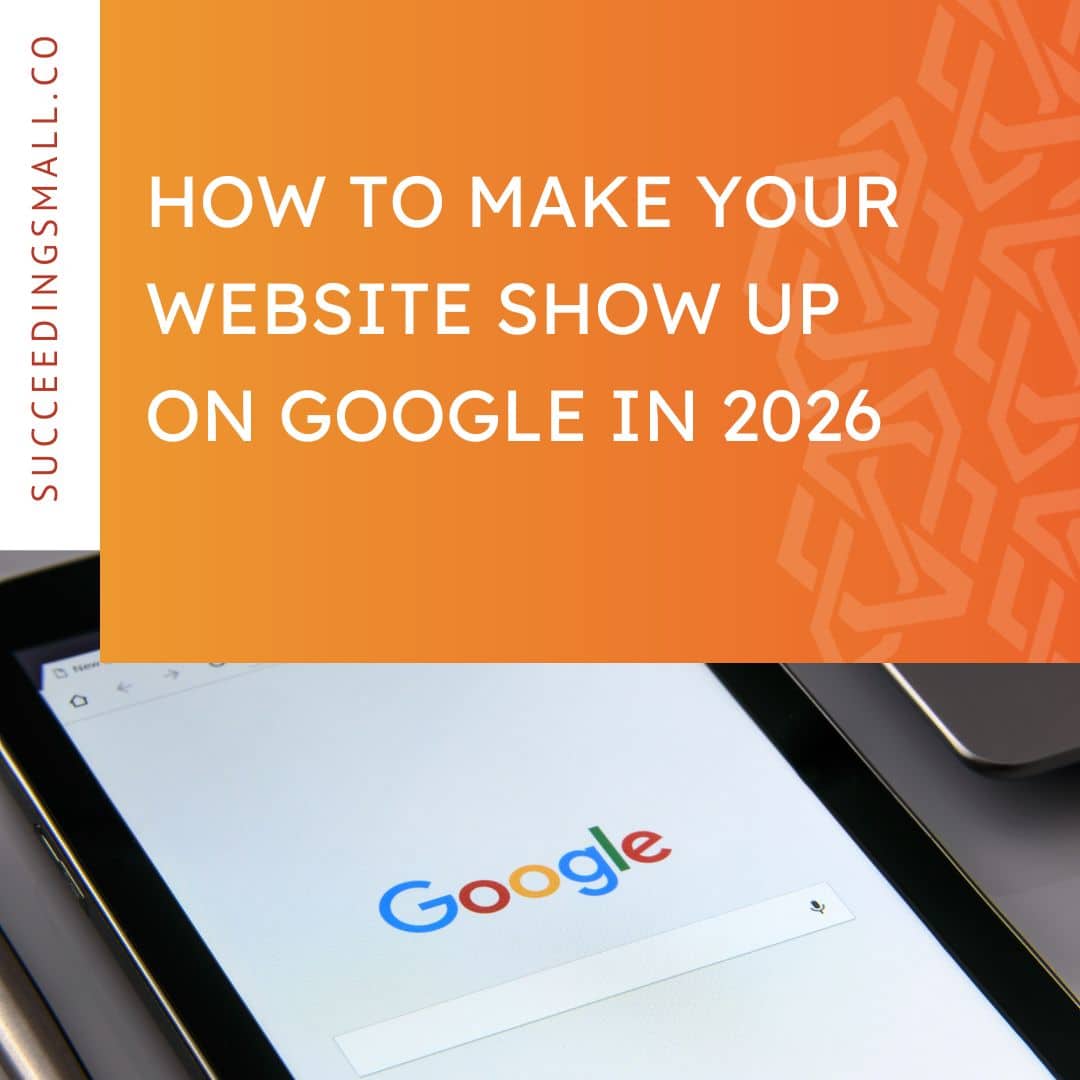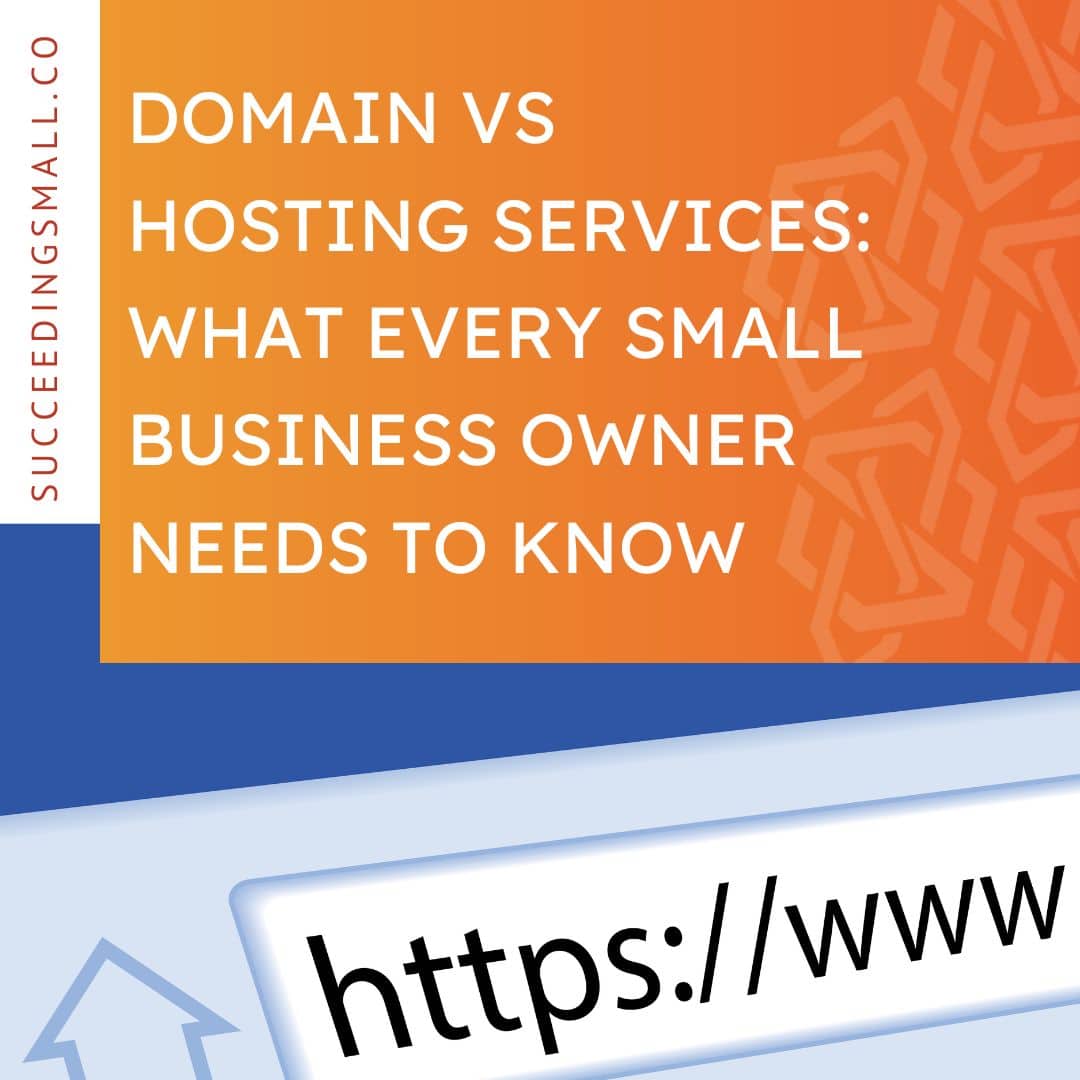Imagine your ideal customer finding your business before anyone else’s. What would that do to your bottom line?
When we search for local sites on Google, we’re trying to get something. We want information about products and services. Every day people type into Google “best ice cream near me,” “affordable vet Colorado Springs,” or “family dental care in Houston.” Local SEO helps make sure your business is the one that pops up for those searches.
Local SEO is the process of optimizing your digital assets to appear in the local search engine results, such as Google’s Map Pack. It includes doing things like optimizing your website and creating local content so you can attract customers in your local area.
Specifically, local SEO is a fantastic marketing strategy for small business owners. In fact, its importance cannot be overstated. According to recent search data, 69% of all digital traffic is made up of organic and local searches.
That’s a ton of people that you don’t want to miss out on! A successful local SEO strategy can help get you in front of those potential customers, no matter the size of your business.
Ready to see how local SEO works in action? We’ll explain the nuts and bolts of local SEO and how you can take advantage of its many benefits as a small business owner.
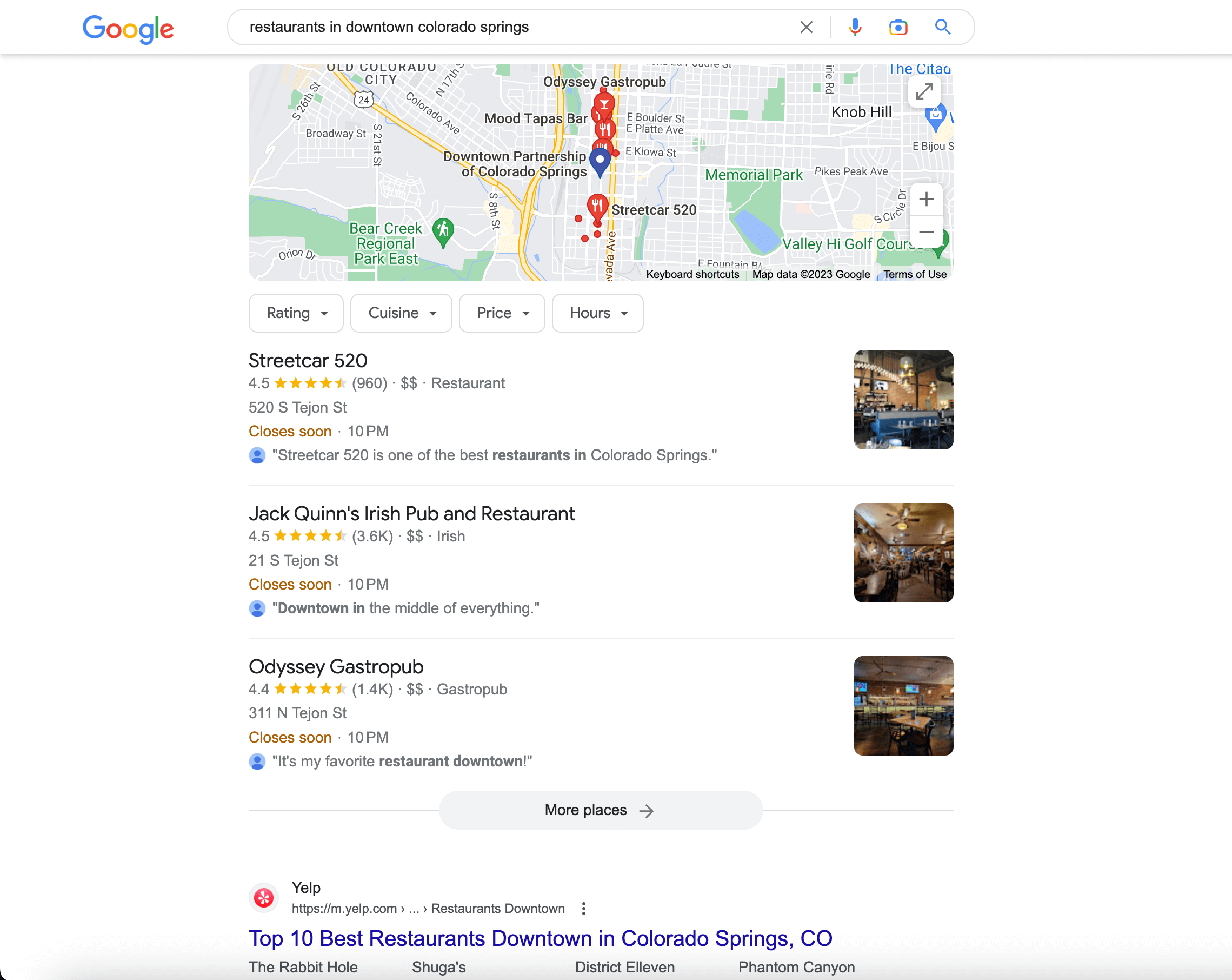
What is Local SEO?
Here’s the answer you’ve been waiting for; what really is local SEO? We briefly defined it above, but let’s give our definition a bit more nuance.
Local SEO is the process of strategizing and optimizing multiple digital assets with the objective of maximizing ORGANIC visibility in a local search area.
That means no paid search traffic — just organic results from search engines.
In other words, local SEO is all about optimizing your website and other digital assets to make sure that when someone searches for the products and services you offer, your business is one of the top results that appear.
How Does Local SEO Work?
Local SEO works by combining the main principles of SEO while focusing on a specific geographical location. Unfortunately, it’s no quick and easy thing to explain, but we’ll try to give you a rundown.
Here’s the first thing to know. Google uses several rank factors to determine what appears in the search results. In addition to those ranking factors, Google also looks at the following other ranking factors:
- Relevance. Is your small business relevant to the search query?
- Proximity. How close is your business to the searcher’s location?
- Prominence. Where does your business stand in terms of competition?
Then, Google displays two types of local search results pages — the Map Pack and the organic results listings.
The Map Pack is what shows up above the organic search results. It’s a highly visible box of three listings that match the query with the business name, address, reviews, and more.
The organic listings are what shows up below the Map Pack. These are usually the websites for the local businesses that match the query. It can also include the top local business listings from directories like Yelp and Tripadvisor.
For example, say I was a consumer in Colorado Springs searching for the best carpet cleaner in my area. I’ll probably type in some variation of “carpet cleaners near me.” Then, I can expect to see several local listings for carpet cleaning companies in or near Colorado Springs in the results.

It would be silly and unhelpful for the search engine algorithm to display carpet cleaning companies in Fort Collins or Estes Park because those businesses don’t serve the Colorado Springs area.
The same goes for any other type of local business, like restaurants, bars, HVAC companies, mechanics, and more.
Pro tip: Google wants to serve its users the most relevant answers, and location is a key factor in that equation. You don’t need to include your city name or “near me” in your search query if your location is on. If Google thinks your search has local intent, it’ll return local results. Try Googling “pet stores” and see how you’ll get local results!
What are the Benefits of Local SEO?
So, why is local SEO important for small businesses? Well, there are several benefits of utilizing a local SEO strategy!
-
- Trust and credibility. Local SEO helps build trust and credibility in your business. By appearing in the local search results, you’re more likely to be seen by customers who are looking for a product or service like yours.
-
- Boost site traffic. Local SEO improves visibility, and that means more website visitors. As people search for local businesses like yours, your business will appear at the top of their results, meaning more traffic coming to your site.
-
- Visibility. With local SEO, you’ll be more visible to customers who may have never heard of your business before. Not only that, but you’ll also stand out compared to other similar businesses in your area.
-
- More leads. With more people seeing and visiting your website, you’ll get more leads and conversions. Simply put, more visibility means more customers.
-
- Gain loyal customers. Local SEO helps you build relationships with customers, which in turn can help you gain loyal customers who come back time and time again.
These are just some of the benefits of local SEO. If you’re looking to gain more visibility, customers, and leads for your small business, then it’s worth investing in a well-planned local SEO strategy.
Why Local SEO Is So Essential for Small Businesses
We’ve already established that small businesses should incorporate local SEO in their marketing strategy. It’s a great way to get visibility from customers who matter the most — the ones living in your community.
However, if you’re not yet convinced, here are a few more reasons why local SEO is so critical for small businesses:
-
- Being visible to consumers in your area is the best way to drive sales and/or conversions.
-
- According to a study conducted by Google, 50% of mobile users who conducted a local search visited a store within a day.
-
- In that same study, 34% of computer and tablet users who conducted a local search also visited a store within a day.
-
- Local searches are more likely to lead to a purchase within a day compared to normal searches at 18% and 7%, respectively.
-
- 42% of local searchers clicked on a result inside Google’s Map Pack.
-
- 87% of searchers in 2022 used Google to check out more information about a local business.
As you can see, it’s clear that local SEO is an essential part of any small business’ marketing plan. When consumers need a service or restaurant to eat at, they will likely conduct a local search and browse through the options displayed near them.
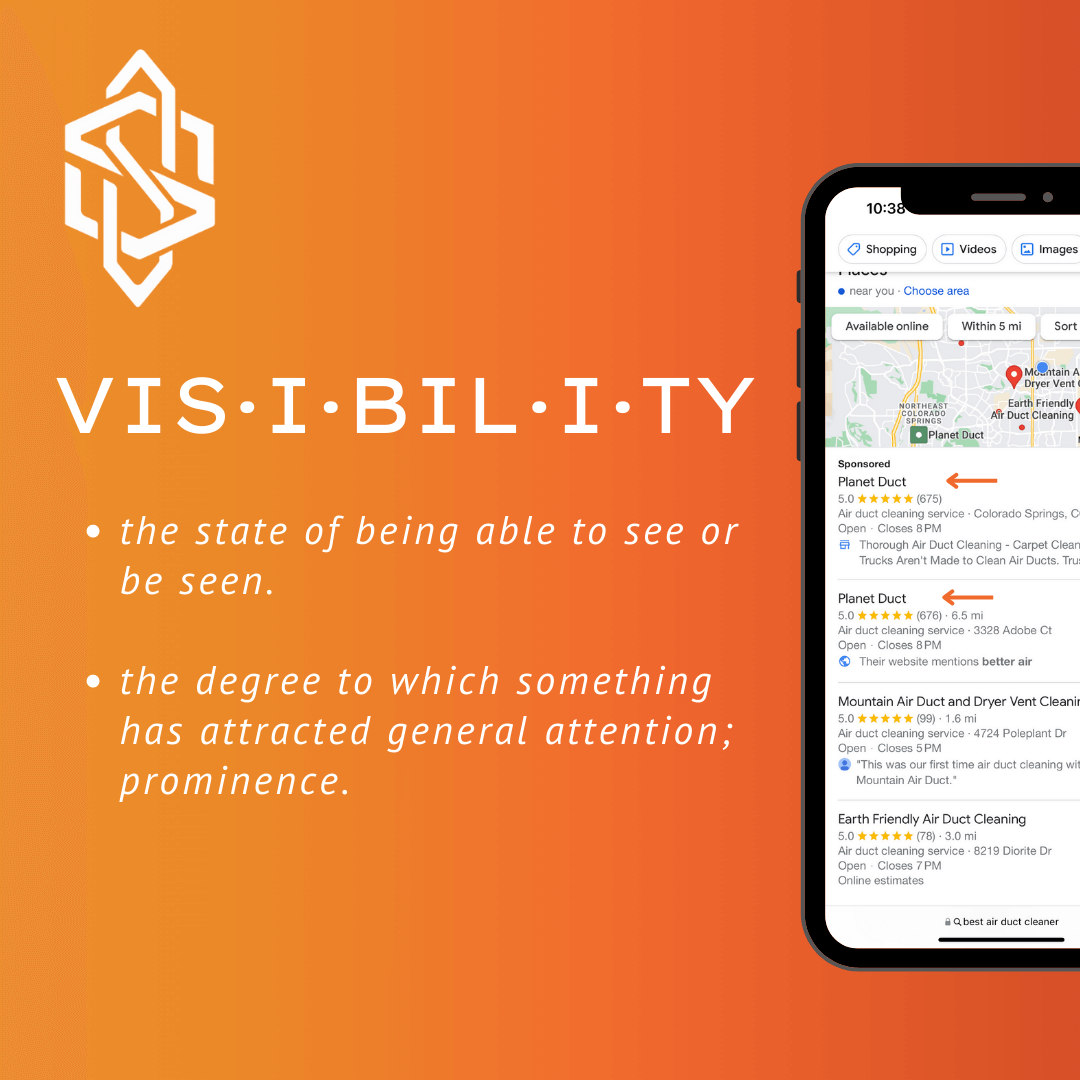
What is the Difference Between Local SEO & National SEO?
The main difference between local SEO and national SEO is the focus on geographical location.
Local SEO focuses on optimizing content for specific areas, using things like local business directories and content, while national SEO aims to optimize content to appear across a wider area.
Let’s take a closer look.
How are Local search results Different From Normal search results?
We’ve been talking a lot about local search, but what does that mean? What are local search results, and how are they different from normal search results?
Well, normal search engine results pages, also called search results for short, will consist primarily of links to websites or informational pages. Think about how you got to this blog, for example! If you searched for a variation of “What is local SEO?” and clicked this link from Google, this page is what showed up in the search results.
Local search results, however, are a bit different. Rather than just providing website links, local search results will often include a local map pack. This is one way that you can differentiate local search results from regular ones.
Who Are Considered Local Service Area Businesses?
A local service area business is any type of business that is in a local community and serves that community directly with a product, good, or service. If you’re a small business owner with a brick-and-mortar store, for example, you would be considered a local service area business.
Even if you don’t have a physical store but rather offer services to local customers either in their homes or offices, you can still be considered a local service area business. Here are some other examples:
Restaurants
Restaurants are prime examples of service area businesses because they provide goods and services to a local community.
Even with a rise in delivery services, the food industry is limited to its geographic location. Restaurants provide food to the community around them, and the best way to do so is by local SEO visibility and local rankings.
Medical practitioners
Any type of primary care office will benefit greatly from local SEO. Like a restaurant, they have a physical location that the consumer needs to travel to. If the consumer lives too far away, then chances are there is a closer doctor to them.
So, capturing the consumers in your area will provide you with a steady stream of clients. This will apply to any type of doctor’s office, such as primary care physicians, optometrists, veterinarians, etc.
Trade businesses
Trade businesses, like plumbers and HVAC companies, are different from doctors and restaurants because they need to travel to the customer’s home or business to provide services.
However, local SEO still works great for these types of businesses because they serve a general area. For example, if a consumer searching for a plumber falls within the plumber’s service area, then they will see the business’ website.
Some additional examples of trade businesses are home builders, roofers, electricians, carpet cleaners, landscapers, etc.

Lawyers and other professional services
Lawyers, accountants, and other professional services are also considered local area businesses. Just like the other examples listed above, these businesses require clients to come into their office or have them travel to the client’s location.
For example, even a large law firm with multiple locations may have an office in Colorado Springs that provides services to the community. As such, it’s important for these types of local businesses to be visible in local search results.
Who Won’t Benefit From Local SEO?
Unfortunately, some businesses don’t benefit as much from a local SEO approach. Businesses like online stores or those who don’t want to share their personal information (think bookkeepers who work from home but don’t want their home addresses public) will find it difficult to rank for local searches.
Instead, these businesses should focus on other strategies to increase their visibility with more viable marketing strategies.
Where Your Small Business Can Show Up on The Local Search Results
Here’s the million-dollar question. What can your business do to show up in local search results? Well, let’s start with some basics.
When a local search is conducted, the algorithm will combine two main components of a local business to determine which to display first: your website and your Google Business Profile.
Pro tip: Being first on the search results shows the consumer that your website is the best fit for their local search inquiry according to the algorithm. One of the main goals of SEO is to make sure that your digital assets are the top result for a given search query.
1. Organic search results
First, the search algorithm will use its archived knowledge of your website to determine if you fit the searcher’s intent. Referring back to our previous example of carpet cleaning in Colorado Springs, Google will make sure that you offer carpet cleaning as a service by checking your website.
2. Local map pack
The next part of this process is when the algorithm assesses your Google Business Profile to see where your business is located and what areas you serve. It will also check where the consumer is located using their device location.
That is why it is so critical to inform search engines of where your business is located. This is simply because the algorithm uses location to determine what digital asset to display.
After confirming that the business is located near the consumer and that they offer the service needed, the algorithm will use other ranking signals to rank all the businesses organically and display them in the local map pack.
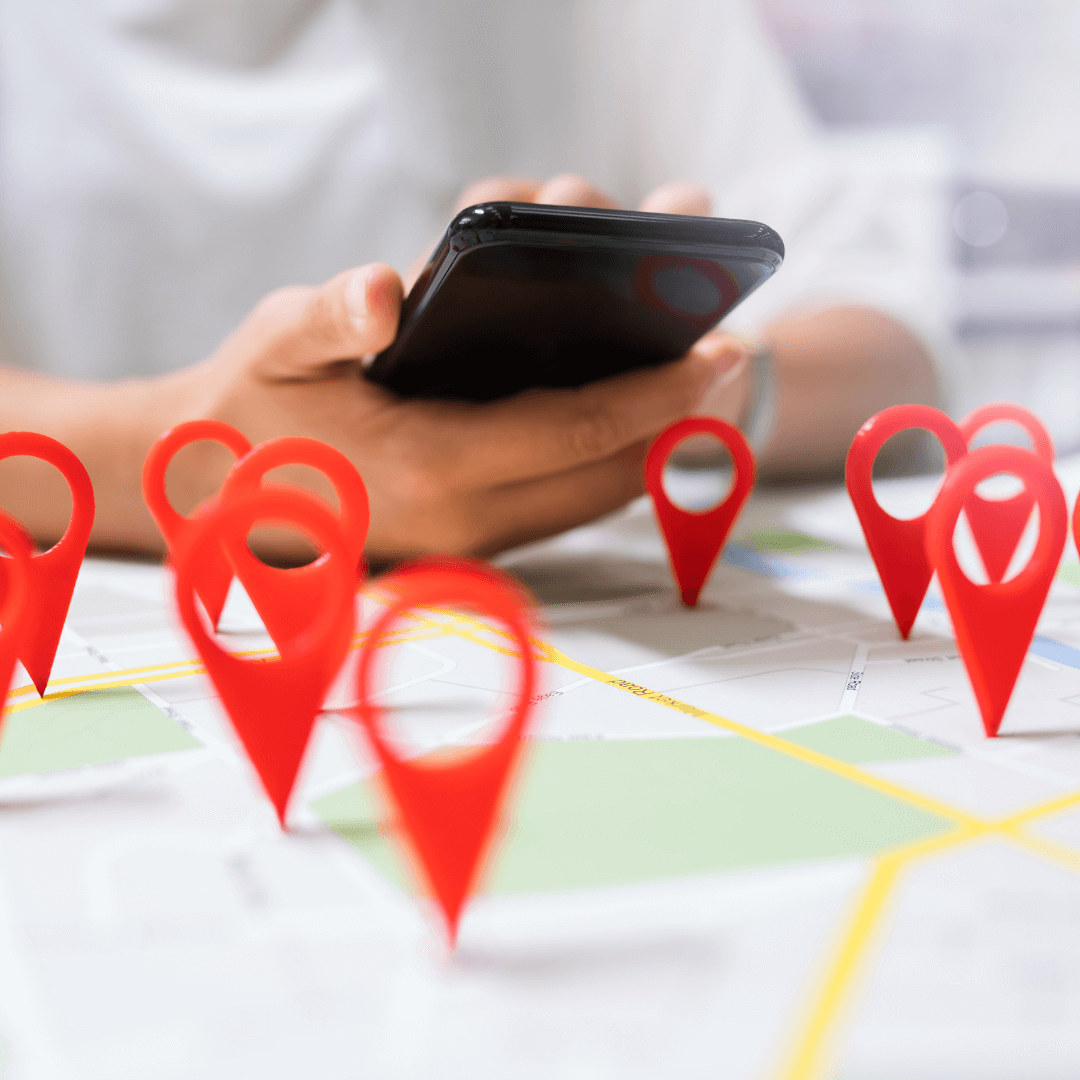
How to Rank With Local SEO
Learning this process is only the beginning. It takes an expert in web development, SEO, and copywriting to build a sustainable SEO strategy. It’s not as easy as updating your location on your website or creating a Google Business Profile.
There’s a reason why people dedicate their careers to search engine optimization after all (wink, wink). Not to mention, Google is constantly updating its algorithm to provide its consumers with better service. Their goal is to provide searchers with answers to their questions as quickly as possible.
For example, in 2020, there were 4,500 Google updates alone, with increases each year. And that’s only when Google releases that they’ve updated their algorithm. Sometimes they don’t even make those changes known.
That being said, an expert in search engine optimization and algorithms will know how to best optimize digital assets, how to solve technical issues when they arise, and how to ethically inform the algorithm that your business is the best in your area and industry!
However, we’re always here to help small businesses understand how to gain digital visibility with local search. Here are some starter tips to get your small business off the ground and running with local SEO.
1. Optimize using location-based keywords
One of the most important parts of any strategy is to optimize your website with local keywords. Keywords are the words that you think your local audience might use when searching for the local services or products you offer.
Using the same example of carpet cleaning in Colorado Springs, you’ll want to use keywords related to your business category, industry, and location throughout your website content. That way, the algorithm can easily detect that your business offers carpet cleaning services in Colorado Springs.
One of the best ways to do this is by doing competitor keyword research. What keywords and phrases are your competitors using?
Doing so will give you an idea of what is already ranking and how to optimize your own site. Make sure you do in-depth keyword research to really have an understanding.
2. Fill out your Google Business Profile
Your Google Business Profile, formerly Google My Business, is what pops up when someone searches for your business on Google. It provides consumers with your business name, address, contact information, and more.
Filling out your Google Business Profile is essential! If you want any chance of standing out from the competition, you’ll want to provide accurate and detailed business information. Here’s some more information on what to include.
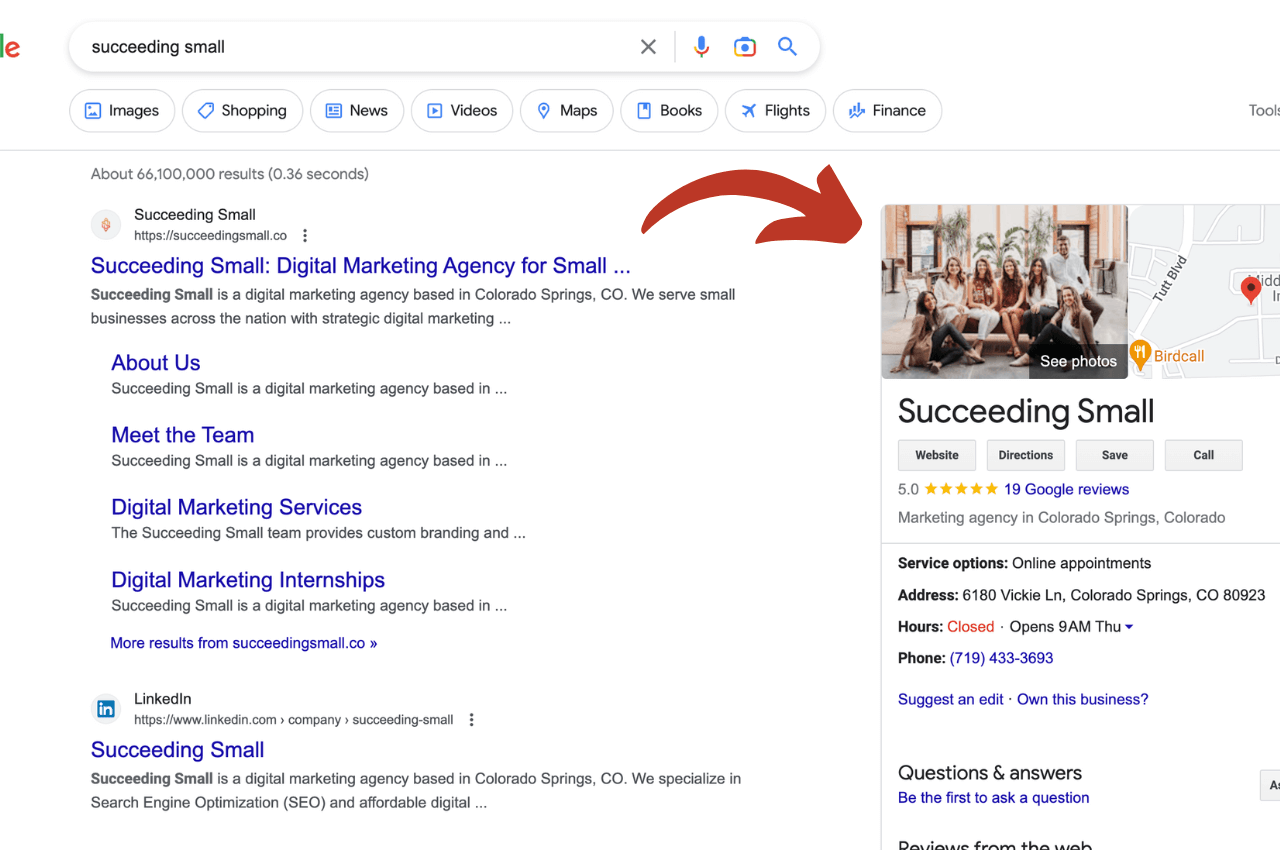
More Information on Google Business Profile Optimization
There are a few ways to optimize your Google Business Profile listing to boost your visibility.
-
- Include high-quality photos and videos of your business and services often
-
- Ask customers to leave a review on your GBP profile
-
- Set your location correctly in the GBP dashboard
-
- Create posts regularly to highlight services or promotions
-
- Answer customer questions on your GBP profile under the Q&A section
-
- Set detailed hours, including holidays and exceptions
-
- Select the correct categories for your business for services offered
3. Make sure your listings are accurate
It’s not enough to just list your business information on your own website. You should also make sure that it is accurate and up-to-date on other websites like Yelp, TripAdvisor, Yellow Pages, and more.
These are all authoritative websites that help give an extra layer of trust and legitimacy to your business. It’s also important for your NAP (name, address, phone number) to be consistent across all sites. Google uses NAP information specifically to make sure your business is legit.
4. Get reviews for your business
Reviews are another great way to boost your visibility online. When potential customers are searching for local businesses, online reviews help them decide who they want to do business with. In fact, 93% of customers say that online reviews influence their purchasing decisions.
Because people care so much about reviews, so does Google. Getting positive reviews is one way you can impact your ranking. It’s important to nurture reviews for your business on all platforms.
Therefore, encourage customers to leave reviews, respond promptly to existing ones, and use review management software if necessary.
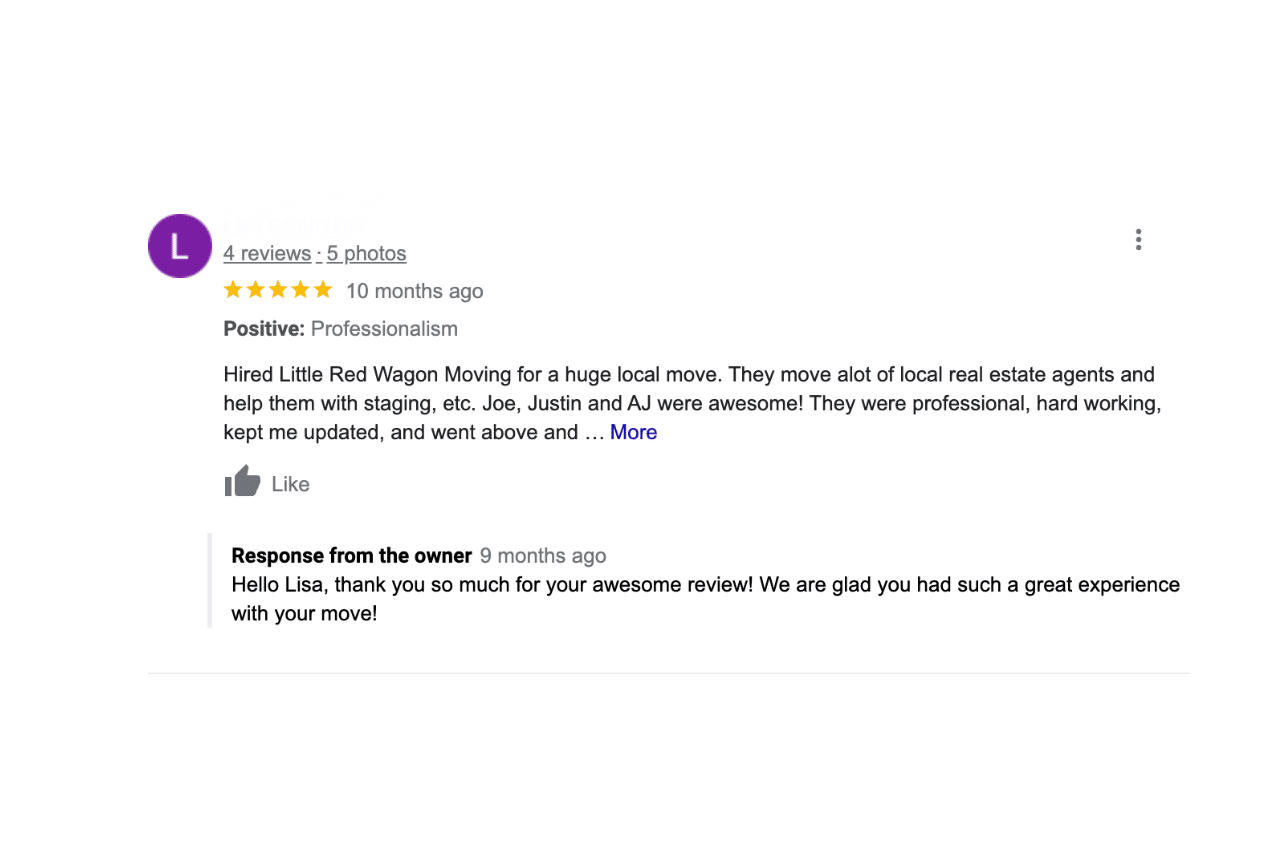
5. Get backlinks to your site
Backlinks are a crucial part of local SEO. Backlinks are when other websites link back to your website.
There is a multitude of ways to get backlinks. One way is by guest blogging or getting interviewed on other websites related to your industry. You can also use social media and email outreach campaigns to solicit links from other websites.
6. Update your website regularly
Google loves fresh content, so it’s important to keep your website up-to-date with new and relevant information. This means adding relevant, keyword-rich blog posts, updating services or products, and providing helpful resources that users can take advantage of.
You should also make sure that your website is optimized for mobile users, as more and more people are searching on their phones. If your website isn’t mobile-friendly, you’re not only losing out on potential customers, but you’re also missing out on better rankings.

The Bottom Line About Local SEO
Local SEO is a powerful and effective way to help your small business get found by customers. It’s crucial that you invest the time, energy, and resources into optimizing your presence online so you can reach more people in the area that you serve.
With these tips in mind, you can help your business get found more easily, boost, and attract more customers. However, having the help of an expert shouldn’t be understated. Hiring a digital marketing professional to help you with your local SEO will save you time and energy while ensuring that all the work being done is correct and effective.
Partner With Your Local SEO Experts at Succeeding Small
At Succeeding Small, we’re here to be your local business marketing partner. We understand the difficulties that small businesses face, and we want to make sure you have the tools and resources you need to succeed. That’s why we’re a full-service digital marketing agency specializing in SEO for small businesses. We’ve helped many incredible small businesses in Colorado Springs and beyond increase their organic search rankings and visibility online.
Our team of dedicated SEO professionals will work to assist you in achieving your goals and growing your small business. Explore our local SEO services and learn more about our amazing team and competitive pricing. While you’re at it, schedule a free consultation to see what Succeeding Small can do for you. We look forward to working with your business!e
share on facebook twitter linkedin pinterest and tag us!
Boost your local visibility!
Grab our Google Business Profile Guide to attract more nearby customers.






